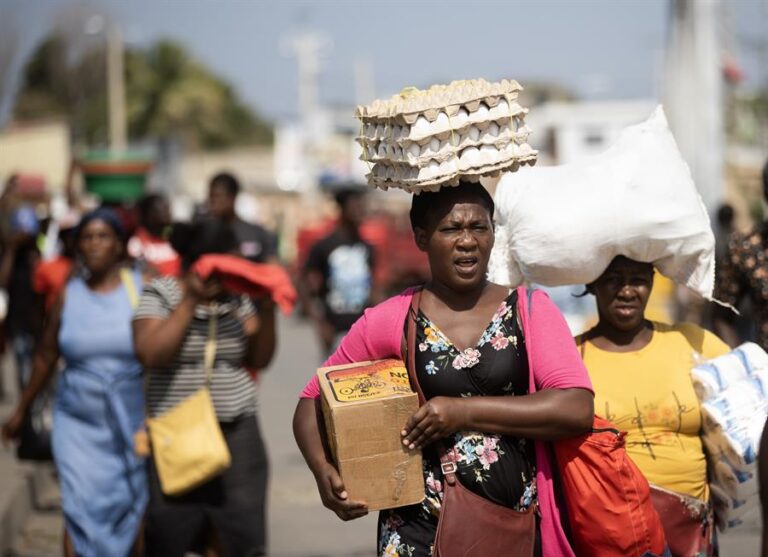
Haitians shopping in Dajabón, DR
Dajabón, Dominican Republic, Mar 24 (EFE).-
Hundreds of Haitians crossed the northern border into the Dominican Republic on Sunday to stock up on food products, away from the violence in capital Port-au-Prince.
The Haitians arrived en masse at the market in the northern Dominican border city of Dajabón to buy rice, eggs, chickens, canned foods, sausages, sugar, onions and other goods, as EFE was able to verify.
Amid a large contingent of Dominican soldiers, buyers from the neighboring country acquired their products without any problem, while a Haitian police officer tried to restore order when they returned to the town of Ouanaminthe, located across from Dajabón.
Haitian buyers from Ouanaminthe seemed not to be affected by the extreme violence taking place in the capital Port-au-Prince, where armed gangs have taken over 80 percent of the territory, although in the last two weeks the Haitian National Police (PNH) has managed to successfully respond to attacks on police stations and strategic places such as the National Palace.

The United Nations World Food Program (WFP) recently said that around 1.4 million Haitians are on the brink of famine and more than 4 million need food aid, according to aid groups, which noted that they sometimes eat once a day, or not at all.
On Mar. 14, the spokesman for the General Secretariat of the United Nations, Stéphane Dujarric, asked the Dominican Republic, and other countries, to avoid “forced deportations” of Haitians.
“We don’t want mass or forced deportations of people to a country that is clearly not safe,” Dujarric said.
This week the UN refugee agency (UNHCR) went further and asked the countries to which Haitians flee to welcome them as refugees instead of deporting them.
Haitians should benefit from refugee protection and not be returned to their country, where gangs run a reign of terror, the UNHCR said Wednesday.
“Haitians’ lives, safety, and freedom are threatened by a confluence of skyrocketing gang violence and human rights violations,” Elizabeth Tan, director of UNHCR’s Division of International Protection, said in a statement.

This position has been flatly rejected by the president of the Dominican Republic, Luis Abinader, who reiterated that he will continue with his policy of deporting any citizen who does not comply with the local immigration requirements.
The position of the Dominican government has been supported by pro-government and opposition legislators, as well as political and business leaders. The Dominican Republic and Haiti have a long history of tense relations.
In recent years, the UN has made the same request and the response has been negative from the Dominican Republic, where it is estimated that more than 600,000 Haitians reside, most of them irregularly. EFE
mm-rsl/tw


